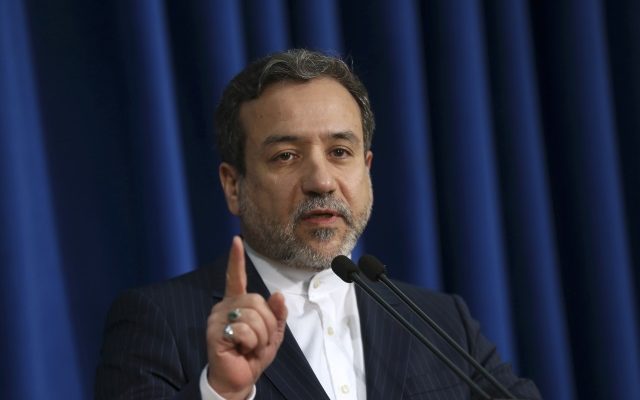Tehran threatens ‘definitive’ response against Israel in retaliation for the assassination of Hamas chief Ismail Haniyeh.
Iran’s plan to attack Israel in retaliation for the recent killing of Hamas leader Ismail Haniyeh in Tehran will be “definitive” and “calculated,” according to Iranian Foreign Minister Abbas Araghchi.
“Iran[‘s] reaction to Israeli terrorist attack in Tehran is definitive, and will be measured & well calculated,” Araghchi wrote on X/Twitter late on Sunday. “We do not fear escalation, yet do not seek it — unlike Israel.”
Araghchi noted that he made the comment during a telephone conversation with Italian Foreign Minister Antonio Tajani, who called to congratulate him on his new appointment as Iran’s top diplomat.
The Iranian foreign ministry then released a statement on Monday saying that Araghchi told his Italian counterpart that Tehran saw the killing of Haniyeh as “an unforgivable violation of Iran’s security and sovereignty.”
Araghchi also warned that Iran is not afraid to increase tensions in the Middle East and that its response to Haniyeh’s death is “inevitable,” according to the statement.
Haniyeh, the exiled political chief of the Palestinian terrorist group Hamas, was killed in an explosion in Iran’s capital city on July 31.
Iran has accused Israel of carrying out the assassination and vowed revenge, which, according to experts and Western officials, will likely take the form of a direct strike on the Jewish state. The Israeli government has neither confirmed nor denied responsibility for Haniyeh’s death.
Iran is the chief international sponsor of Hamas, providing the terrorist group with weapons, funding, and training.
It is unclear when Iran will take action against Israel. Last week, the spokesperson for Iran’s Islamic Revolutionary Guard Corps (IRGC), an Iranian military force and internationally designated terrorist organization, revealed there could be a long wait.
“Time is in our favor, and the waiting period for this response could be long,” Alimohammad Naini said, according to Iranian state media. Naini added that “the enemy” should wait for a calculated response.
Araghchi’s comments came after Israel fighter jets early on Sunday destroyed thousands of rocket launchers belonging to the Iran-backed terrorist group Hezbollah in southern Lebanon, after detecting an imminent attack on the Jewish state.
Hezbollah, which is Iran’s chief proxy force in the Middle East, subsequently fired more than 200 projectiles into Israel.
“What happened today is not the end of the story,” Israeli Prime Minister Benjamin Netanyahu said of the preemptive strikes. [Hezbollah chief Hassan] Nasrallah in Beirut and [Iranian Supreme Leader Ali] Khamenei in Tehran need to know that this is an additional step in changing the situation in the north and returning our residents securely to their homes.”
Hezbollah has pummeled northern Israeli communities almost daily with barrages of drones, rockets, and missiles since the start of the Gaza conflict in October.
About 80,000 Israelis have been forced to evacuate Israel’s north during that time due to the unrelenting attacks. Most of them have spent the past 10 months living in hotels in other areas of Israel.
Hezbollah had said it would attack Israel in retaliation for the killing of Fuad Shukr, a senior Hezbollah commander, in an airstrike in Beirut, Lebanon late last month. Israel claimed responsibility for Shukr’s death.
According to reports, the expected Iranian response will likely be larger than Iran’s unprecedented direct attack on Israeli soil in April. In that attack, Iran fired some 300 missiles and drones at Israel, nearly all of which were downed by the Jewish state and its allies.





